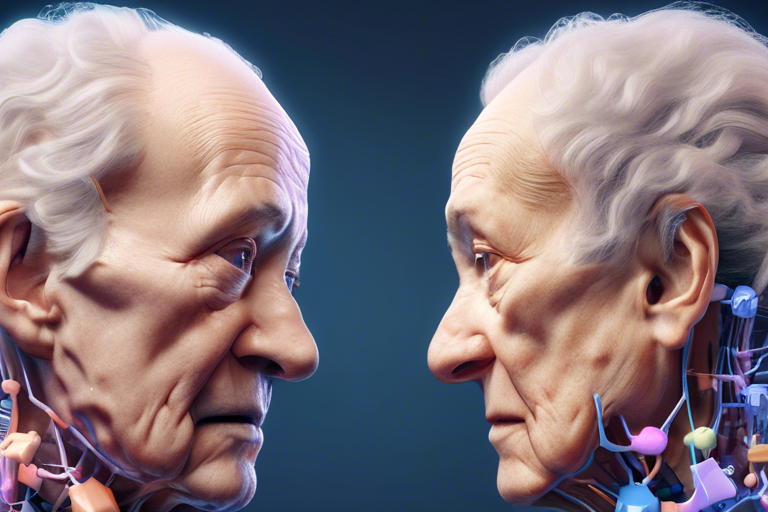Revolutionary AI System Predicts Alzheimer’s Disease Years in Advance 🧠
A groundbreaking study recently featured by the U.S. National Institute of Health reveals an innovative AI system capable of forecasting Alzheimer’s disease up to seven years before the appearance of initial symptoms. This astounding discovery may potentially lead to earlier interventions and treatments for this debilitating condition.
The Power of Artificial Intelligence in Predicting Alzheimer’s 🤖
– By utilizing historical medical records as data inputs, the AI model demonstrated a 70% accuracy rate in predicting Alzheimer’s disease seven years in advance and an impressive 80% accuracy rate the day before the diagnosis.
– Adding basic demographic information such as birth year, gender, ethnicity, and race further improved the predictive accuracy to as high as 90%.
Unveiling the Potential of Electronic Health Records in Disease Prediction 📊
– Electronic health records have emerged as a valuable source of comprehensive data that can be harnessed to comprehend and anticipate complex diseases like Alzheimer’s.
– Previous research on health records tracking Alzheimer’s development and models predicting dementia diagnosis were crucial in shaping this study.
Diving into the Research Process 🧪
– Researchers from the University of California–San Francisco examined clinical data from over 250,000 individuals, including nearly 3,000 Alzheimer’s patients, spanning a database compiled from millions of people between 1980 and 2021.
– The AI models were trained on 70% of patient records, encompassing both Alzheimer’s patients and controls, with the remaining records reserved for the evaluation phase.
Unlocking Early Predictors of Alzheimer’s Risk 🔓
– The AI system successfully anticipated the onset of Alzheimer’s with remarkable precision.
– The researchers identified various early predictors of Alzheimer’s risk, including high levels of cholesterol and other fats in the blood, congestive heart failure, dizziness, cataracts, and deteriorating cartilage between bone joints.
– Osteoporosis emerged as a surprising female-specific predictor of Alzheimer’s risk, with affected individuals displaying accelerated progression towards the disease.
Impact of Early Detection on Alzheimer’s Treatment 🚀
– The early identification of potential Alzheimer’s patients could revolutionize the approach to combating this disease, which currently lacks a cure.
– Having a significant lead time before symptom onset could introduce new strategies to slow down or prevent irreversible damage caused by Alzheimer’s.
Hot Take 🌟
Discovering an AI system capable of predicting Alzheimer’s disease years in advance represents a monumental breakthrough in the field of healthcare. By leveraging historical medical data and demographic information, researchers have uncovered vital insights that could potentially transform the way we approach the diagnosis and treatment of Alzheimer’s. This cutting-edge technology offers hope for earlier interventions and improved patient outcomes, paving the way for a brighter future in the fight against this devastating neurodegenerative condition.





 By
By
 By
By
 By
By


 By
By